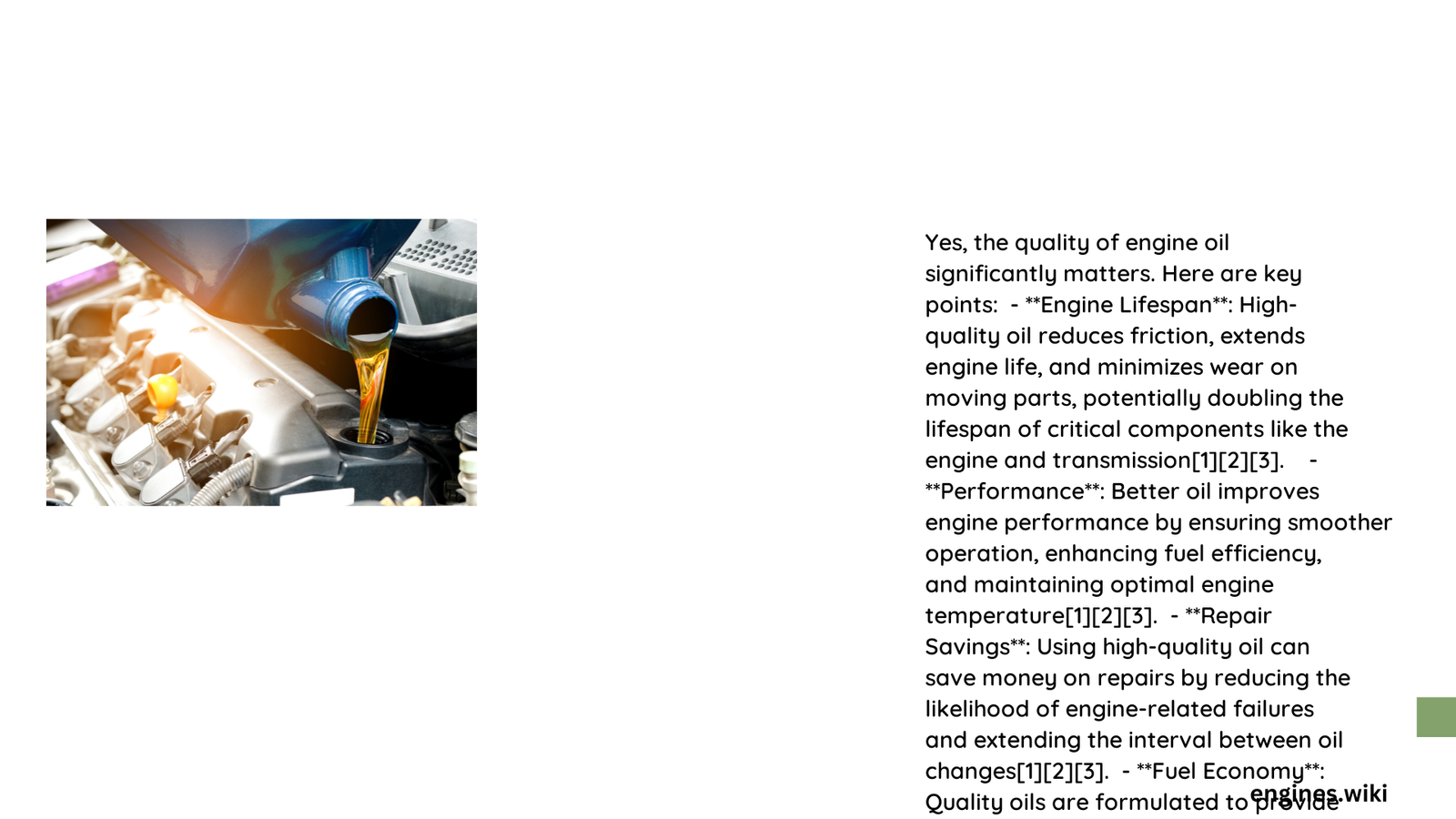Engine oil is the lifeblood of your vehicle’s engine, serving as a critical component that determines performance, efficiency, and longevity. The quality of engine oil directly influences how well your engine operates, with high-grade oils providing superior protection against wear, reducing friction, and maintaining optimal engine health across diverse driving conditions and temperature ranges.
What Makes Engine Oil Quality Critical?
How Does Oil Quality Protect Engine Components?
High-quality engine oil acts as a sophisticated protective barrier between moving metal parts, preventing direct metal-to-metal contact. This protective layer accomplishes several crucial functions:
- Friction Reduction: Minimizes wear between engine components
- Heat Dissipation: Helps regulate engine temperature
- Contaminant Removal: Traps and suspends microscopic debris
- Corrosion Prevention: Shields internal engine surfaces from oxidation
Why Do Different Vehicles Require Specific Oil Grades?
| Vehicle Type | Recommended Oil | Performance Characteristics |
|---|---|---|
| Compact Cars | 5W-30 Synthetic | Low viscosity, excellent cold start performance |
| Heavy-Duty Trucks | 15W-40 Diesel | Higher viscosity, enhanced load-bearing capacity |
| Performance Sports Cars | Full Synthetic | Maximum thermal stability, minimal breakdown |
What Happens with Low-Quality Engine Oil?
Low-quality engine oils can cause significant damage:
- Accelerated component wear
- Reduced fuel efficiency
- Increased engine temperature
- Potential premature engine failure
- Higher maintenance costs
How Much Can Quality Oil Impact Vehicle Performance?
Research indicates that high-quality synthetic oils can:
– Improve fuel efficiency by up to 2-3%
– Extend engine life by 30-50%
– Reduce maintenance costs by minimizing wear-related repairs
What Factors Determine Oil Quality?
Key quality indicators include:
- Viscosity Stability: Maintains consistent performance across temperature ranges
- Additive Package: Contains detergents, anti-wear agents, and friction modifiers
- API Certification: Meets stringent industry performance standards
- Base Oil Composition: Synthetic vs. conventional formulations
Can Oil Quality Affect Long-Term Vehicle Value?
Consistently using high-quality engine oil can:
– Preserve engine integrity
– Maintain vehicle resale value
– Reduce likelihood of catastrophic engine failures
– Provide more predictable maintenance expenses
Expert Recommendations

Automotive engineers universally recommend:
– Follow manufacturer’s specified oil grade
– Change oil at recommended intervals
– Use high-quality synthetic or synthetic blend oils
– Monitor oil condition regularly
– Consider driving conditions when selecting oil
Cost Considerations
While premium oils cost more initially, they offer substantial long-term savings:
– Fewer oil changes
– Reduced engine wear
– Better fuel economy
– Lower repair probability
Practical Takeaways
The quality of engine oil matters significantly. Investing in high-grade oil is not an expense but a strategic investment in your vehicle’s performance, efficiency, and longevity.
Final Verdict
High-quality engine oil is not optional—it’s essential.
References:
– SAE International Oil Viscosity Standards
– API Engine Oil Guidelines
– Society of Automotive Engineers Research
